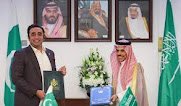The
story is simple, in stark violation of international law, Israeli Prime Minister
Benjamin Netanyahu and his ministers claim the right to rule over seven million
Palestinians. When Israel’s occupation of Palestinian lands leads to militant
resistance, Israel labels the resistance “terrorism” and calls on the US to
overthrow the Middle East governments that back the “terrorists.” The US, under
the sway of the Israel Lobby, goes to war on Israel’s behalf.
The fall of Syria this past week is the culmination of the US-Israel
campaign against Syria that goes back to 1996 with Netanyahu’s arrival to
office as Prime Minister. The US-Israel war on Syria escalated in 2011 and
2012, when Barack Obama covertly tasked the CIA with the overthrow of the
Syrian Government in Operation Timber Sycamore. That effort finally came
to “fruition” this week, after more than 300,000 deaths in the Syrian
war since 2011.
Syria’s fall came swiftly because of more than a decade of
crushing economic sanctions, the burdens of war, the US seizure of Syria’s oil,
Russia’s priorities regarding the conflict in Ukraine, and most immediately,
Israel’s attacks on Hezbollah, which was the key military backstop to the
Syrian Government. No doubt Assad often misplayed his own hand and faced severe
internal discontent, but his regime was targeted for collapse for decades by
the US and Israel.
Since 2011, the US-Israel perpetual war on Syria, including
bombing, jihadists, economic sanctions, US seizure of Syria’s oil fields, and
more, has sunk the Syrian people into misery.
In the immediate two days following the collapse of the
government, Israel conducted about 480 strikes across Syria, and
completely destroyed the Syrian fleet in Latakia. Pursuing his
expansionist agenda, Prime Minister Netanyahu illegally claimed control over
the demilitarized buffer zone in the Golan Heights and declared that the Golan
Heights will be a part of the State of Israel “for eternity.”
Netanyahu’s ambition to transform the region through war,
which dates back almost three decades, is playing out in front of our eyes. In
a press conference on December 09, 2024 the Israeli prime minister
boasted of an “absolute victory,” justifying the on-going genocide in Gaza and
escalating violence throughout the region.
The long history of Israel’s campaign to overthrow the
Syrian Government is not widely understood, yet the documentary record is
clear. Israel’s war on Syria began with US and Israeli neoconservatives in
1996, who fashioned a “Clean Break” strategy for the Middle East for Netanyahu
as he came to office.
The
core of the “clean break” strategy called for the Israel (and the US) to reject
“land for peace,” the idea that Israel would withdraw from the occupied
Palestinian lands in return for peace. Instead, Israel would retain the
occupied Palestinian lands, rule over the Palestinian people in an Apartheid
state, step-by-step ethnically cleanse the state, and enforce so-called “peace
for peace” by overthrowing neighboring governments that resisted Israel’s land
claims.
The Clean Break strategy asserts, “Our claim to
the land—to which we have clung for hope for 2000 years—is legitimate and
noble,” and goes on to state, “Syria challenges Israel on Lebanese soil. An
effective approach, and one with which the US can sympathize, would be if
Israel seized the strategic initiative along its northern borders by engaging
Hizballah, Syria, and Iran, as the principal agents of aggression in Lebanon…”
In his 1996 book Fighting Terrorism, Netanyahu set out
the new strategy. Israel would not fight the terrorists; it would fight the
states that support the terrorists. More accurately, it would get the US to do
Israel’s fighting for it.
As he elaborated
in 2001, the first and most crucial thing to understand is this: There is no
international terrorism without the support of sovereign states.… Take away all
this state support, and the entire scaffolding of international terrorism will
collapse into dust.
Netanyahu’s strategy was integrated into US foreign policy.
Taking out Syria was always a key part of the plan. This was confirmed to General
Wesley Clark after 9/11.
He was
told, during a visit at the Pentagon, that “we’re going to attack and destroy
the governments in seven countries in five years—we’re going to start with
Iraq, and then we’re going to move to Syria, Lebanon, Libya, Somalia, Sudan and
Iran.”
Iraq would be first, then Syria, and the rest. (Netanyahu’s
campaign for the Iraq War is spelled out in detail in Dennis Fritz’s new
book, Deadly Betrayal. The role of the Israel Lobby is spelled out in Ilan
Pappé’s new book, Lobbying for Zionism on Both Sides of the Atlantic). The
insurgency that hit US troops in Iraq set back the five-year timeline, but did
not change the basic strategy.
The US
has by now led or sponsored wars against Iraq (invasion in 2003), Lebanon (US
funding and arming Israel), Libya (NATO bombing in 2011), Syria (CIA operation
during 2010’s), Sudan (supporting rebels to break Sudan apart in 2011), and
Somalia (backing Ethiopia’s invasion in 2006).
A prospective US war with Iran, ardently sought by Israel,
is still pending.









